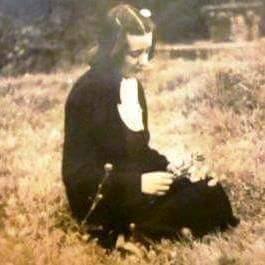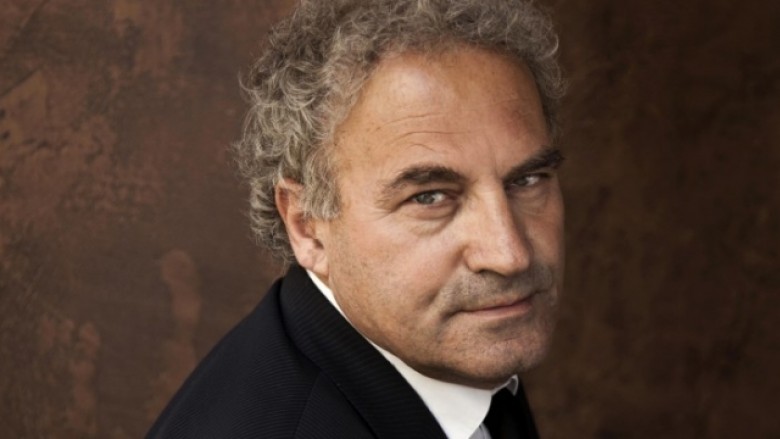
BY VISAR ZHITI/

On February 10, Musine Kokolari, the first Albanian female writer, the first female dissident in the entire communist empire, founder of an opposition party, political prisoner, who, after 20 years in prison, would have closed her eyes in exile, while 10 years later, in 1993, when the communist dictatorship had fallen, it was decorated by the President with the medal “Martyr of democracy” and finally “Honor of the Nations”, it was his birthday. Everyone should have remembered it. But every day can be considered a birthday of human values, therefore also of the great name of Musine Kokolari. His life and his works, actions, sufferings, attitude, beauty and tenacity are a precious experience, an inestimable moral wealth for all, a source of virtue, an important culture, a permanent appeal of dignity, beneficial for the country…

Musine Kokolari the wonderful girl from Argirocastro, finished high school “Nëna Mbretëreshë (” Reggina Madre “) in Tirana, in 1937, she goes to study at the University of Rome, in Italy, concluding with excellent results. Already as a student he published his first book “Seç më thotë nëna plakë” (What the Old Mother Says), with fascinating stories that he received recognition and appreciation from one of the greatest Italian writers, Alberto Moravia.
Together with his other friends, in the 1943, he founded the Social Democratic Party and the daily newspaper “Zëri i Lirisë” (“The Voice of Freedom”). In 1944, he published his second book of stories “Si u tund bota” (“While the world trembles”), 348 pages, while the 12 November of that year his brothers Muntaz and Vesim Kokolari are shot without trial. The new winners were entering the capital with terror. Four days later they also arrested the first Albanian writer, they kept her in prison for 17 days. He publishes his third book “Rreth vatrës” thus establishing himself as a true writer, but on 23 January of 1946, they arrested her for the second time and sentenced her to 20 years in prison.
From his statements in court
“After the meeting in Mukje, I participated as a Social Democrat in the National Front and I was in charge of the newspaper” The Voice of Freedom “, where I published articles that talk about the issue of Kosovo in the framework of the Atlantic Charter … The struggle was not for the benefit of some groups, but for the democratization of the country “.
“I’m not guilty. I am not a communist and this cannot be a fault. You won the election, but I don’t have to be in jail … I’m a student of Sami Frashëri. By condemning me you want to condemn the Renaissance “.
When someone shouted that she had to be sentenced to be hanged, and President Frederik Nosi asked her if she heard what the people were asking, Musine quietly replied: “Tomorrow he will say the same thing for you the crowd”.
In the 1961 she is exonerated and sent into exile in Rrëshen: she does heavy physical work, she is a bricklayer. Loneliness as punishment and books, books, were his friends. However she would have been the spiritual patron of the writer Bilal Xhaferri, who will flee to the United States to escape persecution, since her father had been shot. In the 1981 Musine he became seriously ill, and died two years later. They threw it into a pit and covered it with her work, which they did not allow her to write, with the gravel machine.
At the end of his life
In the manuscript “On my life”, Musine wrote: “The communists buried me alive … at the trial I did not apologize for my work. And why did I have to apologize? … I am not guilty … “.
A sad end: “I have known the democratic culture, I have known the tragedy of the great repressions of revolutionary movements. I went through a special process. I have known 16 years in prison and 22 years of exile. I have known manual labor in agriculture and construction. I have known solitude, occasional friendships in prison and all the consequences that derive from this earthquake to consolidate the dictatorship of the proletariat. Sometimes I tell myself that I didn’t win anything to stay alive. It is from 38 years that I don’t know what it means to have a family. Perhaps it would have been better if I had closed my eyes forever. Thus ended my suffering, and this tragic situation.
His message: If I die, in my little suitcase I have some objects of ethnographic value for the Gjirokastra Museum. The few savings and everything I have will go to the press fund, which must be created in favor of the laborers, it is indispensable, so as to democratize it and cultivate the simple worker “.
His message is even greater, painful, important and permanent. It is a call to collective memory, to action, to life, to the country. Naturally she is honored today, she took the halo of the martyr, her work was published in full, thanks to the will of the scholar Novruz Shehu. His readers are many, the admirers also, as well as the American Ambassador in Tirana. She is even given a prize with her name to women, while an Italian researcher, Mauro Geraci, is preparing the publication in Italy of the memories of Musine in Rome.
When she studied there, she organized cultural and patriotic meetings, the rooms rented her paying herself another Albanian, Dane Zdrava, who first brought the cinema to her city, Berat. He had attended the Naval Academy in Naples, patriot, but he too would have died in communist prisons. We remember this as a wonderful experience, which the dictatorship has devastated, but which must be revived.
Musine Kokolari got some titles during democracy, etc., etc., however his birthday was forgotten, even though it was the 95 anniversary of his birth. The message to convey is: that we must maintain a link with those who were the protagonists of the Renaissance, include them in the calendar of our activities, always. This centenary of Independence must help us inculcate this.
Without such a calendar our society will always lack something, the light of the future will be missing. These celebrations must be done and must not simply be an official routine but an active part of a collective memory, of our everyday life.
They must be natural and resemble, as it were, the metaphorical lighting of a candle, for which another great Albanian woman, Mother Teresa, said: Better to light a candle than to grope in the darkness.
Because forgetfulness does not become darkness.